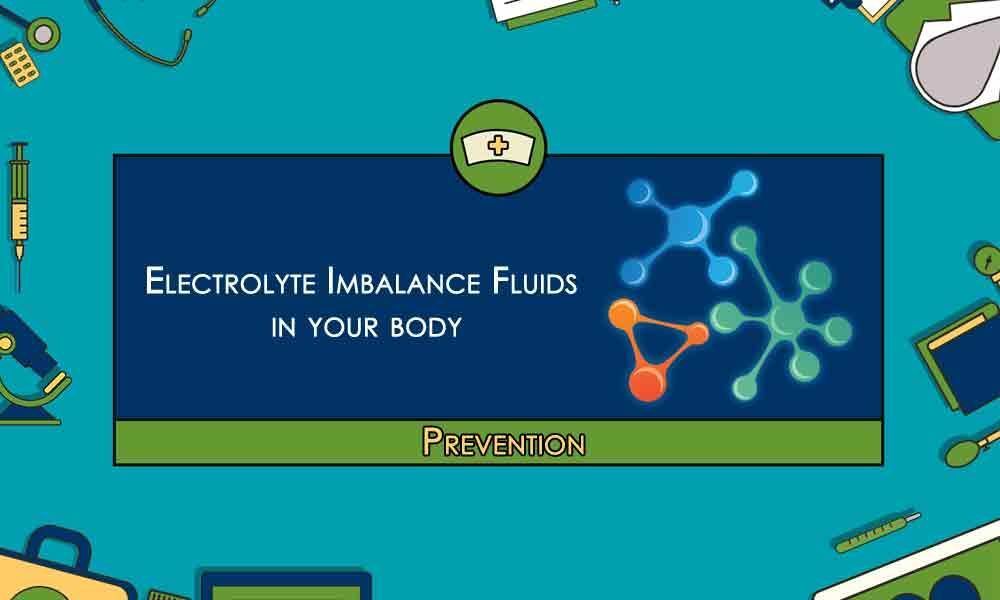How to Prevent Electrolyte Imbalance Fluids in your body

Since 1965, electrolyte replenishers have been swigging in your body.
Since 1965, electrolyte replenishers have been swigging in your body. That was the year a coach from Florida Gators asked doctors why his players wilted in the heat so fast.
Their reply? Too many electrolytes were lost by the players. Inventing Gatorade was their solution. So, what are electrolytes, and why do they matter?
Water and electrolytes are vital to your health. Your body is about 75-80% water at birth. The percentage of water in your body drops to about 60% if you're male and 55% if you're female by the time you're an adult. Your body's volume of water will continue to decline as you age.
Fluid containing things like cells, proteins, glucose, and electrolytes in your body. Electrolytes are derived from the food and fluids you eat. Examples of electrolytes are salt, potassium, calcium, and chloride.
Electricity and your body When dissolving in your body fluid, electrolytes take on a positive or negative charge. This allows them to conduct electricity and move electrical or signal charges across your body.
These charges are critical to many of the functions that keep you alive, including the brain, nerves, and muscles operation, and new tissue creation.
Each electrolyte in your body plays a particular role. The following are some of the most important electrolytes and their primary functions:
SODIUM
♦ Helps control fluids in the body, affecting the blood pressure
♦ Needed for muscle and nerve function.
CHLORIDE:
♦ Helps balance electrolytes
♦ balance acidity and alkalinity,
♦ which helps to maintain a healthy PH.
POTASSIUM
♦ regulates your heart and blood pressure
♦ helps balance electrolytes
♦ helps in the transmission of nerve impulses
♦ contributes to the bone health
♦ needed for muscle contraction
MAGNESIUM
♦ is important in the production of DNA and RNA
♦ helps to maintain nerve and muscle function
♦ helps to regulate blood glucose levels.
CALCIUM
♦ the key component of bones and teeth
♦ important for the movement of nerve impulses and muscle movement
♦ contributes to blood coagulation.
PHOSPHATE
♦ strengthens bones and teeth
♦ helps cells produce the energy needed for tissue growth and repair.
WHEN ELECTROLYTES BECOME UNBALANCED
These fluid levels are expected to be fairly consistent. Approximately 40% of your body weight is from fluids inside the cells, and 20% of your body weight is from fluids outside the cells.
Electrolytes help your body juggle these values to keep a healthy balance in and out of your cells. Fluctuating electrolyte levels is normal.
However, your electrolyte levels may get imbalanced sometimes. This can lead to too many or not enough minerals or electrolytes being created by your body.
A number of things can cause an electrolyte imbalance, including: fluid loss from heavy exercise or physical activity vomiting and diarrhea drugs such as diuretics, antibiotics and chemotherapy drugs alcoholism and heart failure cirrhosis diabetes eating disorders severe burns some forms preventing electrolyte imbalance The Associate of the International Marathon Medical Director If your sporting event or workout lasts longer than 30 minutes, you should drink a sports drink that contains electrolytes and carbohydrates.
Drinking water with a sports drink will diminish the benefits of the drink. Drink when thirsty. Don't feel you have to replenish fluids constantly. Even though each individual's needs differ, a general rule of thumb is to limit fluids every 20 minutes of a race to 4–6 ounces.
If you lose more than 2% of your body weight or gain weight after running, seek immediate medical advice. Serious electrolyte imbalances emergencies are rare.
But it's important for your health and to maintain a healthy electrolyte balance if you're an athlete. Symptoms of electrolyte imbalance symptoms vary depending on which electrolyte is most affected. Common symptoms include retention of nausea lethargy fluid Call 911 Life-threatening electrolyte imbalances.
Call 911 if someone has the following symptoms: confusion or sudden change in behavior of severe muscle weakness rapid or irregular heartbeat seizures chest pain Treatment is determined by the cause of the electrolyte imbalance, the severity of the imbalance, and the type of electrolyte either in short supply or excessive.
Treatment options are usually either increased or decreased intake of fluid. If depleted, mineral supplements may be administered by mouth or intravenously.











